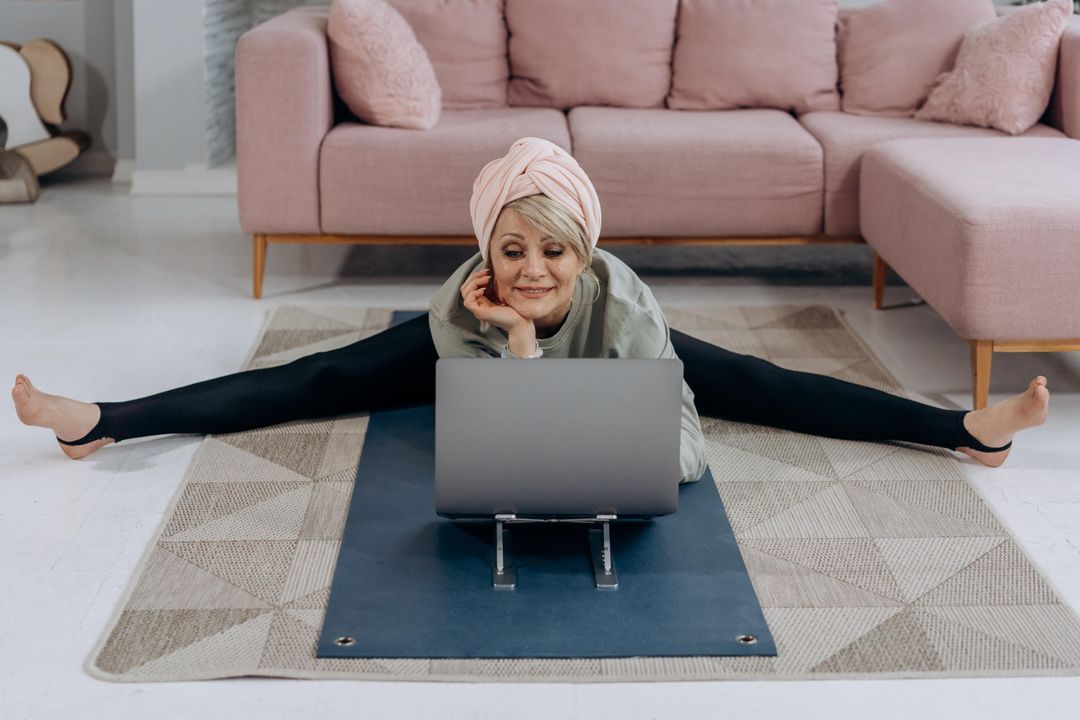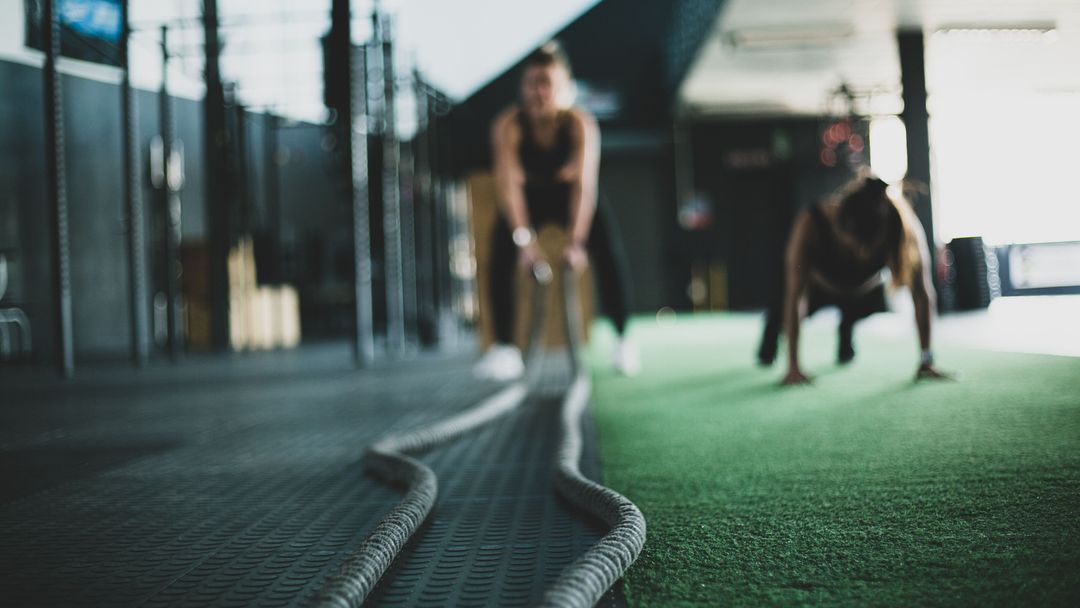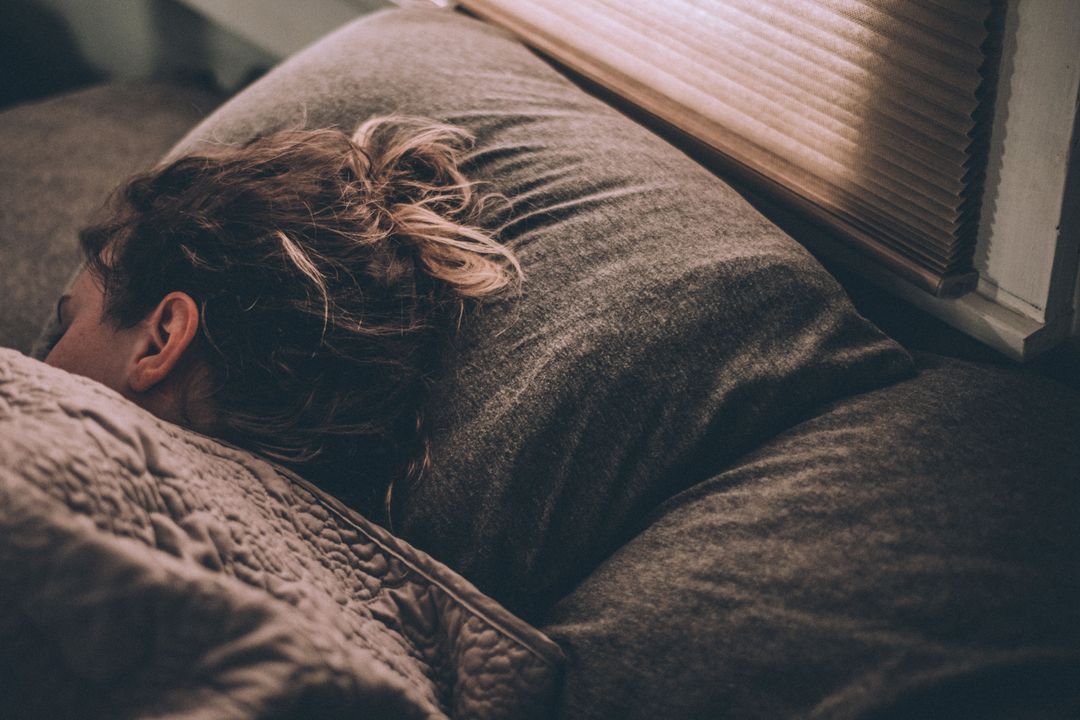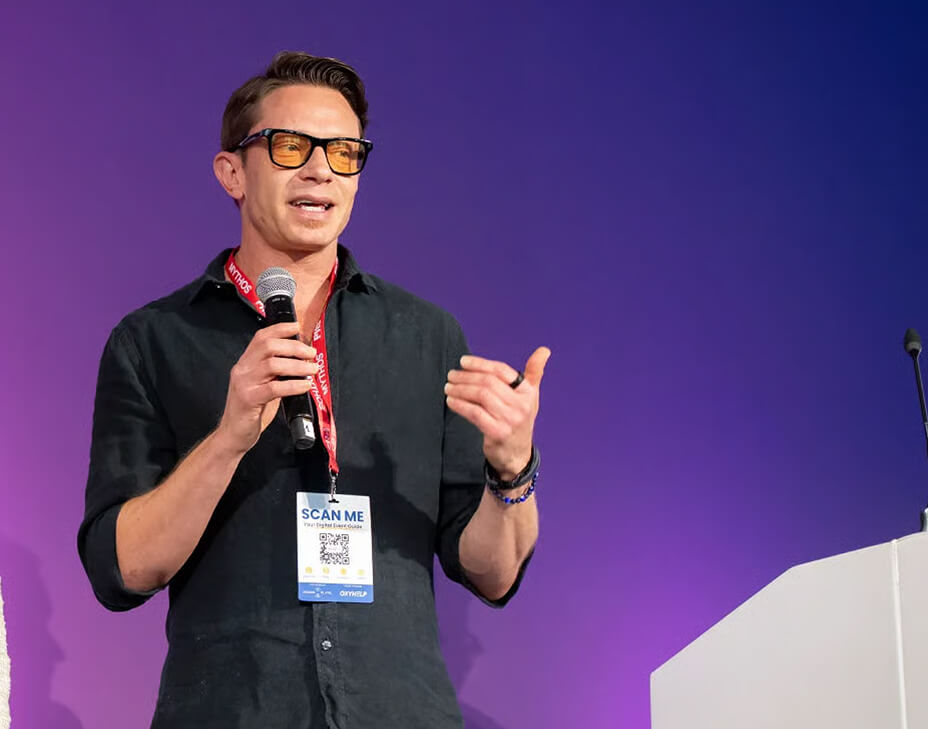The Hidden Trap of Overtraining - It Could Be Ageing You Faster Than You Think!
Discover the unexpected connection between overtraining and rapid ageing. Learn how Tara, a woman in her 50s, used GlycanAge to navigate her health and make more suitable lifestyle choices. Read for a captivating journey of self-discovery, fitness and ageing.
What happens when a woman reaches her 50s and doesn’t have any symptoms of menopause? Sometimes, the most unusual of symptoms can appear and point to multiple things - in this case, overtraining and menopause. Find out how our amazing client Tara used GlycanAge to make more suitable lifestyle choices.
It’s lovely to meet you, Tara. I wanted to start off by congratulating you on your amazing GlycanAge results.
Thank you. It's about, I would say, two years in the making. And I know my second result was not as good as my first result, but I also think I overtrained.
Because I have a tendency to do more rather than less. I guess that might be a little bit why it's gone that way. But when you look at the biomarkers, it's a very small difference. I also have a sugar addiction. I need to find a way to get that under control because if I did, my score would be much better.
Knowing what needs changing is already a huge step towards the right direction. Can you share what encouraged you to change your habits and start living healthy?
For me, it was during lockdown. Before the lockdown, I was working in a hybrid model, two days from home, and three days in the office. Working from home allowed me to manage my diet and fitness better, and I liked it. So when we went into lockdown, I had this amazing opportunity to work, work out and eat from home for 5 days a week.
I would eat a big breakfast, a big lunch and a small dinner. I was able to change my usual dinner to lunch. So I naturally changed my habits simply because of the lockdown. And I know that most people gained weight during that time. They sat at home and watched more TV, but I didn't do that.
I got up every day at 6:00 and showered. I would wash my hair, put on makeup, I'd go for a walk because 2020 was a year that the UK had the best weather in a really long time. I couldn't go to the gym, however, I did a lot of Zoom classes, like ballet. I did YouTube yoga. I found this lovely yoga and pilates teacher based in Australia.
I’m not naturally a person who enjoys working out, but I got all the needed motivation from Zoom and YouTube and found it great to have something to follow. I also made sure I was fully equipped at home. I had a foam roller, a headstand yoga chair and everything else I needed.

I was also doing lots of walking and just avoiding sitting at home and watching TV. I was keeping myself active during the day and I had more time. Since I didn't have to commute, I got to turn my commute into gym time.
At the same time, I discovered intermittent fasting and I decided I wanted to try and see if it would work for me. It become a lifestyle. I noticed my body changed, I became stronger and then I started doing classes when the gyms opened, but I found the classes too easy.
I signed up for F45 to do more weight training. And it just almost happened naturally that at the same time, I discovered an Australian doctor at Harvard called David Sinclair. I watched his podcast on longevity and healthspan. And I became mesmerised by it because I was 55 in June, but I started doing this when I was about 53. And I found that most people my age don’t invest in their longevity.
But I must be doing something right, because in the press, you had people talking about Nicole Kidman, Jennifer Aniston, Shakira, all these amazing women in their 50s who were looking good, but they were also my age.
I also hit perimenopause, maybe even earlier than I actually knew, and everyone says a perimenopausal woman is going to have belly fat. But I'm on HRT and I don’t have that pouch.
Thank you for opening up about menopause. Was this time easy for you and what were your symptoms?
Of course. I went to my GP and I said I would like to know when I'm menopausal because I plan to go on HRT. I didn't give my GP a choice, I chose for myself what I wanted. I researched it just as I researched longevity, intermittent fasting and so on.
And I found it intriguing. I loved the science behind it because, for me, it's not just buying a pill or buying a face cream. There's science in what we're doing. And so that's how I found GlycanAge as well, because, David Sinclair, said you needed to test your biological age against your chronological age.
I Googled it and found your company and I thought, I need to do this because I need to know what's going on in my body. I also do a general blood test checkup every year just to see what's working, and what isn't.
Because I had a frozen shoulder, and disc protrusion on L4, and L5, and I have sciatica. As you get older, everything takes longer to heal. And so I decided I needed to know how to age well. But there is also something else, and this is what I mentioned to your colleague as well. I have a lot of energy. I don't know if this is genetic, is this something that is in my DNA or is this because I take resveratrol, ubiquinol, magnesium, vitamin C, and vitamin D?
I don't drink a lot of alcohol. I do when I go out on a Friday or a Saturday, but I'm not a big alcohol drinker. I don't smoke, and if you have the right foundation, the supplements will work. If you don't have the right foundation, it won't work. Now, I also think I could work out less. If I could sleep more, I think I would be better.
But, you know, when you get in the habit of training, it’s hard to break it. I tend to surround myself with people who enjoy a similar lifestyle, so it's fun.
To get back to your question, surprisingly, I didn’t have any of the regular menopause symptoms. I was getting older and I had never been injured. And then in the last five, or six years, I was getting injured when doing sport, and it's taking longer to heal. So I decided I needed to fix these things.
I did GlycanAge for the first time in November 2022, a few months after I injured my L4 and L5, and all I could do was walk because I could barely sit down and I was in lots of pain.
And so in September 2022, I started the protocol with a Ubiquinol Urolithin A, and I thought - before I really get into it, I should test my GlycanAge. I was 54 at the time, my biological age was 44. And I was told it could have also been a good score because I had only just gone back into sport.
I had a period where I'd done lots of walking and I had just gone back to doing one class a day. And so I took my test again in March and my GlycanAge is 47. It could be because of the increase in the amount of workouts I do in a week, my body is under a lot more stress now.
I was also doing longer fasts, sometimes even for 17 or 18 hours. Now I've stopped that. Since my last GlycanAge consultation, I've been doing 13 to 14, and not necessarily every day.
But I wanted to say that my experience with GlycanAge was great. I had Lucija for both of my consultations and the reason I picked her was because it had said she was really quite knowledgeable about menopause.
What I didn't say was, that when I was in my very late 40s, I got a frozen shoulder. I didn’t realise till two months ago that a frozen shoulder is sometimes related to perimenopause. No one told me!
I haven't had your classical symptoms, so I didn't have the flushes or any of your classical perimenopausal symptoms. What I had was - I was totally erratic emotionally. And I noticed that I would be waking up in the morning and I didn't recognise myself and I was unhappy. And it actually destroyed my relationship. Some couples can cope with this. My partner couldn't cope with me and my emotions, so we did break up, but that was a good thing.
It’s important to realise that menopause is different for every woman. I took the initiative to go on HRT, and I'm very happy with that. I'm also comfortable staying on it permanently. I think everyone has to do what makes them comfortable. I'll be 55 in 2 weeks. I don't feel it. But I also think that my body behaves differently now.
When it comes to my diet, if I want chocolate, I eat chocolate. But I make sure I have a good breakfast and a good lunch, and I have a small dinner. I found what works for me. My body almost tells me when I should eat. During the time window from about 11 a.m. to about 3-4 p.m., I will consume the majority of my calories. After 7:00, 7:30. I don't have an appetite.
I will tell you that when I had my first GlycanAge test in November, I was very happy with 44. Then in March, I got 47. I was a little disappointed because I'd been taking all these longevity pills for about seven months so I was expecting to have better results. But something that Lucija had mentioned in November was if you over-exercise, sometimes that can affect your biological age.

I also think it was a little bit because my HRT had slightly changed. I was taking four pumps of estrogen in November. Now I'm taking two pumps because my body fat also went down and you need body fat to store estrogen.
I was disappointed, but GlycanAge allowed me to understand what had changed. So I think everything I do is great. But I think for me, it's important to have a way to measure and a way to monitor it.
This is still a great result and you shouldn’t feel disappointed. Is there anything you would recommend to people looking to start optimising their health?
I try to sleep. Sleep helps us recover, build muscle, and burn fat. Everything we need, we do when we sleep. You've got to get between 7 and 8 hours. For me, de-stressing is to sleep. I like sleeping.

I'm so active during the day, but at night time, I want to sleep. That’s one thing I would recommend to anyone who wants to feel better.


